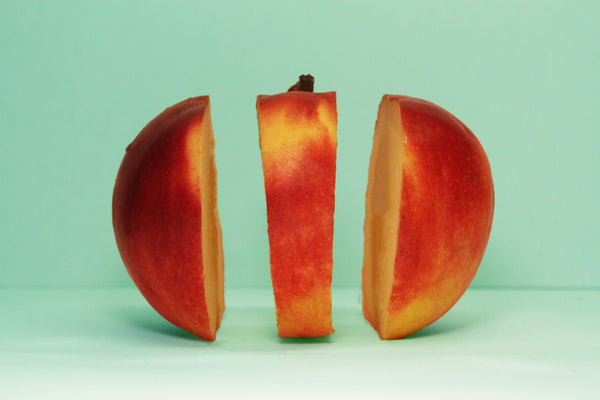Desserts You CAN Eat While On A Diet
Here are some of the top weight loss friendly desserts that can satisfy any sweet tooth...
Here are some of the top weight loss friendly desserts that can satisfy any sweet tooth...

Watching our waistline doesn’t mean that we can’t still enjoy the occasional treat!
Many people believe that indulging in dessert means waving goodbye to weight loss goals, but that’s far from the truth. The key to enjoying sweets while staying on track is moderation, smart ingredient swaps, and mindful portion control.
Rather than completely cutting out desserts, focusing on low-calorie sweets and diet-friendly treats can help satisfy cravings without derailing progress. In this blog, we’ll explore how to enjoy desserts while maintaining a healthy balance, share some weight-loss friendly dessert ideas, and offer simple swaps to make your treats even healthier.
Absolutely! Losing weight doesn’t mean depriving yourself of the foods you love. The secret lies in:
✔ Portion Control – Enjoying smaller servings to manage calorie intake.
✔ Ingredient Swaps – Opting for low-sugar alternatives like fruit or natural sweeteners.
✔ Higher Protein Desserts – Choosing protein-rich treats that keep you fuller for longer.
By making small adjustments, you can enjoy guilt-free desserts that align with your health goals.
Before diving into low-calorie dessert ideas, here are a few tips to help you satisfy your sweet tooth while staying on track.
It’s not always about what you eat, but how much. Managing portion sizes is one of the best ways to enjoy desserts without exceeding your calorie goals.
High sugar intake is often linked to weight gain and energy crashes. By making small swaps, you can cut back on refined sugar while still enjoying delicious desserts.
Protein helps reduce cravings and promotes satiety, making it a great addition to desserts.
Ingredients:
1 ripe avocado
1 ripe banana
4 tbsp cacao
3 tbsp coconut oil
100ml almond milk
Blend, place into small pots, or glasses, set in fridge and top with raspberries.

Method:
Blend all ingredients until smooth. Divide into small pots or glasses, refrigerate until set, and top with fresh raspberries.
Caloric Content
Each serving contains approximately 220 calories.
This rich and creamy mousse tastes just as indulgent as a traditional chocolate dessert but is made with nutrient-dense ingredients. Avocados not only provide a velvety texture but are packed with heart-healthy monounsaturated fats. Studies suggest that incorporating avocado into meals can increase satiety, helping to manage appetite and support weight loss.
Ingredients:

Method:
Blend all ingredients and pour into ice lolly moulds. Freeze until solid.
Caloric Content:
Each popsicle contains approximately 27 calories.
These simple and refreshing popsicles are perfect for a hot day. With protein-rich yoghurt, antioxidant-packed berries, and insulin-sensitising cinnamon, this dessert helps balance blood sugar levels—minimising sugar cravings and reducing the likelihood of overeating.
For more mouth watering ice lolly recipes, read our: 4 Super Healthy, easy to make Ice Lolly recipe article
3. PISTACHIO CHOCOLATE BANANA SUSHI

Method:
Dip the banana in melted dark chocolate, sprinkle with crushed pistachios, and slice into sushi-style pieces. Refrigerate until set.
Caloric Content:
Each banana contains approximately 170 calories.
Bananas are naturally low in calories while being rich in fibre, making them a filling yet satisfying snack. Pistachios add a crunchy texture and contain healthy fats that promote satiety, while dark chocolate provides antioxidants.
4. APPLE SLICE COOKIES
Ingredients:

Method:
Spread nut butter on each apple slice, then sprinkle with toppings.
H4: Caloric Content:
Each apple slice cookie contains approximately 130 calories.
Despite their higher calorie count, nuts are known to support weight loss by reducing hunger and promoting fullness. Pairing them with apple slices offers a sweet, crunchy, and nutrient-dense snack.
5. PRESS Super Berry Smoothie

This smoothie blends strawberries, blueberries, and raspberries for a refreshing, nutrient-dense drink. Packed with antioxidants and natural sugars, it’s a great morning pick-me-up or post-dinner treat. The addition of coconut water replenishes electrolytes, making it a great option after a workout.
For an extra protein boost, mix with your favourite protein powder to create a smoothie bowl topped with fresh fruit.
6. 5 MINUTE 100% MANGO SORBET
Ingredients:

Method:
Blend frozen fruit until smooth and serve immediately.
Caloric Content:
Each scoop contains approximately 35 calories.
Using 100% fruit keeps this sorbet naturally sweet while providing fibre and essential vitamins. It’s a guilt-free way to enjoy a frozen treat without refined sugar.
7. CHIA PUDDING
Ingredients:

Method:
Soak chia seeds in milk overnight. Stir in honey and cinnamon before serving.
H4: Caloric Content:
Each serving contains approximately 160 calories.
Chia seeds are packed with fibre and protein, helping you feel full for longer. Their high nutrient content makes this a great dessert for those looking to maintain a balanced diet.
8. FROZEN YOGURT STRAWBERRIES
Ingredients:

Method:
Dip strawberries in yoghurt, place on a tray, and freeze.
Caloric Content:
Each 50g serving contains approximately 30 calories.
Strawberries are naturally low in sugar and calories, while yoghurt provides gut-friendly probiotics. This dessert is a simple, refreshing option for those looking to enjoy something light and nutritious.
9. BAKED PEARS WITH WALNUTS AND CINNAMON
Ingredients:

Method:
Scoop out the pear’s seeds, sprinkle with cinnamon and walnuts, and bake at 170°C for 30 minutes. Serve warm, optionally with natural yoghurt.
H4: Caloric Content:
Each half-baked pear contains approximately 80 calories.
This warm dessert is perfect for cooler months, offering natural sweetness with a dose of protein and fibre. The walnuts help slow sugar absorption, reducing insulin spikes and keeping cravings in check.
Desserts can fit into a healthy diet when balanced with nutritious meals throughout the day.
If you’re following a structured meal plan, opt for desserts that complement your macronutrient needs, such as high-protein snacks or low-sugar treats.
Looking for specific diet-friendly dessert options? Here are some swaps based on dietary needs:
These alternatives help ensure you can satisfy cravings while staying on track.
Losing weight doesn’t mean giving up desserts—it just means making smarter choices. By opting for portion-controlled servings, swapping refined sugar for natural alternatives, and incorporating protein-rich ingredients, you can satisfy your sweet tooth without compromising your goals. Small changes can make a big impact, allowing you to enjoy indulgences while maintaining a balanced diet.
Ready to stay on track with delicious, nutrient-packed meals? Explore our meal plans designed to support your health and wellness journey.
Photo Credit: Brooke Lark
DISCLAIMER: We endeavour to always credit the correct original source of every image we use. If you think a credit may be incorrect, please contact us at info@press-london.com

LATEST NEWS LATEST NEWS LATEST NEWS LATEST NEWS LATEST NEWS LATEST NEWS LATEST NEWS LATEST NEWS LATEST NEWS LATEST NEWS LATEST NEWS LATEST NEWS LATEST NEWS LATEST NEWS LATEST NEWS LATEST NEWS
This month we celebrate World Digestive Health Day - a perfect reminder to show your gut a little extra love. We put our digestive system through a lot every...
READ MORE →
As the days get longer and the temperatures start to creep up, you might notice a shift in your cravings. It’s no longer comfort food season - suddenly, your...
READ MORE →
Carrots might not be the first thing that comes to mind when you think of nutrient-dense foods, but this everyday veg has a lot going for it. From helping...
READ MORE →Join the convo on Instagram @press_healthfoods.... tag us to be featured!
Your cart is currently empty.
We’re doing a celebratory dance in the warehouse